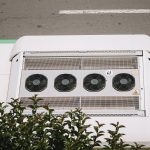In the contemporary world, energy efficiency has transitioned from a mere buzzword to a critical household necessity. With the escalating costs of energy and the global push towards environmental sustainability, consumers are increasingly turning to energy-efficient appliances. Among these, HVAC systems stand out due to their substantial consumption in homes, often accounting for a significant portion of energy bills. This article aims to unravel how investing in energy-efficient HVAC systems can be a game-changer for your household expenses, comfort, and even your carbon footprint.
Households worldwide are experiencing the pinch of rising energy costs, a trend that brings the efficiency of HVAC systems into sharp focus. These systems, responsible for heating, ventilation, and air conditioning, typically consume more energy than any other home appliances. Consequently, any improvement in their efficiency can lead to a noticeable dip in monthly utility bills, offering relief to household budgets and freeing up funds for other essentials.
Adopting energy-efficient HVAC systems isn’t just about immediate cost savings; it’s an investment in a sustainable future. As climate change effects become increasingly pronounced, every energy-saving action counts. By understanding and embracing more efficient HVAC technology, homeowners are taking a proactive step towards curbing excessive energy use, promoting environmental preservation, and most importantly, paving the way for substantial long-term financial savings.
Decoding Energy Efficiency in HVAC Systems
In the realm of HVAC systems, “energy efficiency” refers to the performance of the equipment in using minimal energy to provide maximum comfort. This efficiency is often quantified through specific ratings such as Seasonal Energy Efficiency Ratio (SEER), Energy Efficiency Ratio (EER), and Heating Seasonal Performance Factor (HSPF). These ratings are crucial as they give consumers a clear metric to compare potential energy savings between different models.
Understanding these ratings is essential for any homeowner. For instance, the SEER rating represents the total cooling output during a season divided by the total electrical energy input, with higher numbers indicating greater efficiency. Similarly, EER is the ratio of cooling capacity to the power input, and HSPF is a ratio used specifically for measuring the efficiency of heating pumps. By being informed about these metrics, homeowners can make knowledgeable decisions that align with their energy-saving goals.
Advancements in HVAC technology have been pivotal in enhancing energy efficiency. From variable-speed compressors that adjust to the cooling or heating demand to improvements in coil designs for optimal heat transfer, modern systems are engineered for peak performance. This technological evolution means newer HVAC systems require significantly less energy to operate, reducing utility bills and supporting a greener environment.
The Cost-Saving Benefits of Energy-Efficient HVAC Systems
One of the most immediate and noticeable impacts of an energy-efficient HVAC system is a reduction in utility bills. Since HVAC systems are major energy consumers in most households, even a small improvement in efficiency can result in significant savings. For instance, replacing a traditional HVAC unit with one that has a higher SEER rating can save homeowners hundreds, if not thousands of dollars annually.
Real-life comparisons provide concrete evidence of these savings. For example, a traditional air conditioner with a SEER rating of 9 replaced with a modern system rating of 13 can lead to approximately 30% savings in energy costs. These figures can be even more impressive with heating systems, especially in colder climates where heating demands are high.
The benefits of energy efficiency extend beyond just monthly savings. Energy-efficient HVAC systems tend to have longer operational lives and reduced maintenance needs due to their advanced design and technology. This reduction in wear and tear means fewer repair costs and the convenience of avoiding frequent service interruptions, contributing to substantial long-term savings.
Environmental Impact and Utility Incentives
The environmental benefits of using energy-efficient HVAC systems are profound. These systems contribute to a significant reduction in the total energy demand from the residential sector, which plays a crucial role in lowering greenhouse gas emissions. In essence, by opting for an energy-efficient HVAC system, you’re not just cutting down your expenses; you’re also doing your part in combating climate change.
Governments and utility companies often incentivize the purchase of energy-efficient appliances. These incentives can take the form of rebates, tax credits, or discounts, significantly offsetting the initial investment costs. For example, in the United States, federal tax credits for energy-efficient home improvements can cover a percentage of the cost, with certain conditions. These incentives serve the dual purpose of easing the financial burden on individuals while encouraging widespread adoption of energy-saving technologies.
Additionally, the societal benefits of reduced energy consumption are vast, including less strain on the national grid and decreased reliance on fossil fuels. This collective move towards energy-efficient appliances at the micro-level can lead to macro-level impacts, potentially influencing national energy policy and promoting environmental sustainability.
Smart Thermostats and Zoning Systems
The advent of smart thermostats has revolutionized HVAC energy efficiency. These intuitive devices allow for precise control over home temperatures, learning your routine, and adjusting temperatures based on your lifestyle, thereby avoiding energy wastage. This level of control can lead to notable cost savings, as the HVAC system doesn’t operate unnecessarily when no one is home or in unoccupied rooms.
Zoning systems complement this technology by dividing a home into different zones, each with individual temperature controls. This means the HVAC system only works to condition occupied spaces, reducing the energy used to heat or cool unoccupied rooms. This targeted approach to temperature control avoids the inefficiency of one-temperature-fits-all scenarios, leading to lower energy consumption and costs.
These advanced technologies not only optimize HVAC operations for energy savings but also enhance overall home comfort. Imagine your home’s temperature adjusting to your preference automatically before you arrive or reducing its operation in areas you don’t use. These scenarios depict the dual benefits of convenience and savings offered by smart thermostats and zoning systems.
Routine Maintenance: A Key to Sustained Efficiency
Regular maintenance is pivotal in maintaining the efficiency of your HVAC system. Over time, components can wear down, air filters can become clogged, and system performance can start to degrade, all leading to increased energy consumption. Scheduled professional check-ups can prevent these issues, ensuring your system maintains its efficiency rating over its lifespan.
Homeowners can undertake several routine tasks to maintain their system’s performance. These include changing air filters regularly, keeping outdoor units free of debris, and ensuring vents and registers are not obstructed. These simple actions can prevent a decline in efficiency, avoiding a scenario where the system works harder than it needs to, consuming more energy and leading to higher costs.
Neglecting routine maintenance has its consequences. Efficiency losses mean higher operating costs, but it also can lead to system failures requiring expensive repairs or replacements. Preventative maintenance, on the other hand, is a minimal cost that pays for itself through sustained energy savings and the avoidance of costly breakdowns.
Investing in Energy Efficiency: What to Consider
When considering the leap to an energy-efficient HVAC system, homeowners need to evaluate several factors. The initial cost is often higher for these systems due to advanced technology; however, the long-term savings significantly outweigh this initial investment. It’s essential to analyze potential energy savings, available incentives, and the environmental impact of your decision to get a complete picture.
A crucial aspect of this investment is the cost analysis. Understanding the upfront costs versus long-term savings involves not only considering the purchase price but also installation costs and expected energy savings over the system’s life. With energy prices potentially rising, the return on investment for energy-efficient HVAC systems becomes even more significant.
Making the transition also requires careful selection of the right system. Factors such as the size of your home, climate, and existing infrastructure must be considered. It’s advisable to consult with HVAC professionals who can provide insights into the best systems for your specific needs, ensuring optimal efficiency and cost savings.
Maximizing Your HVAC’s Efficiency for Financial Gain
Throughout this article, the myriad benefits of energy-efficient HVAC systems have been explored. From significant cost savings to environmental conservation, the impacts of making this choice are far-reaching. Energy-efficient HVAC systems are not just about reducing expenses; they’re about embracing a sustainable lifestyle, contributing positively to the environment, and investing in technology that offers comfort, savings, and peace of mind.
The financial advantages of investing in an energy-efficient HVAC system are clear and measurable. Reduced utility bills, potential tax credits, and rebates, coupled with fewer repair costs, make this investment a wise financial decision. However, the benefits extend beyond the individual to society at large, contributing to a reduction in energy consumption, which is vital in our energy-conscious world.
As we draw to a close, it’s essential to encourage homeowners to take proactive steps towards adopting energy efficiency. Whether you’re building a new home, replacing an old HVAC system, or seeking ways to reduce energy costs, consider the efficient alternatives available. The investment not only assures financial gains but also ensures a sustainable, comfortable, and responsible lifestyle. The choice to go energy-efficient is indeed a decision to save money while saving the planet.









